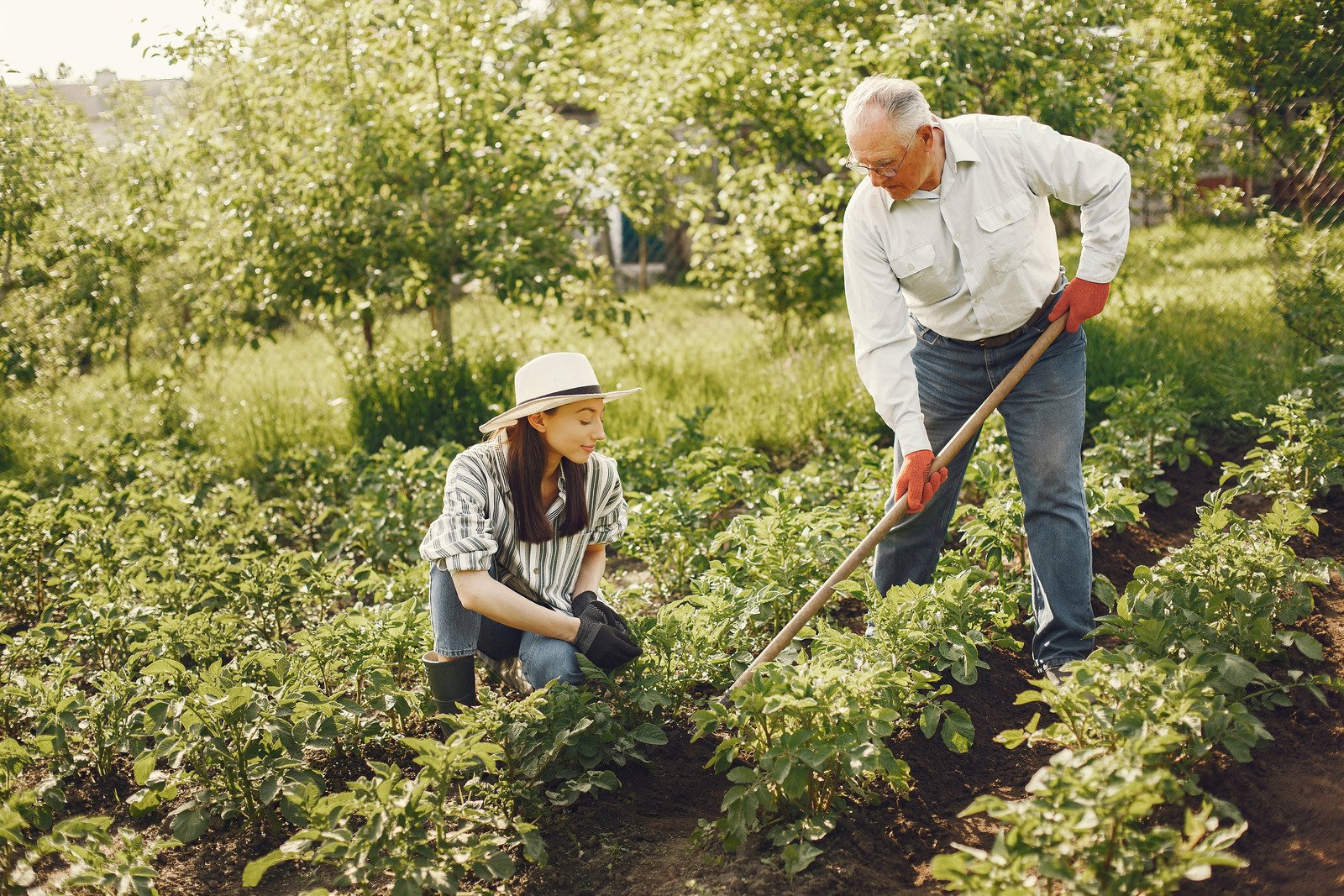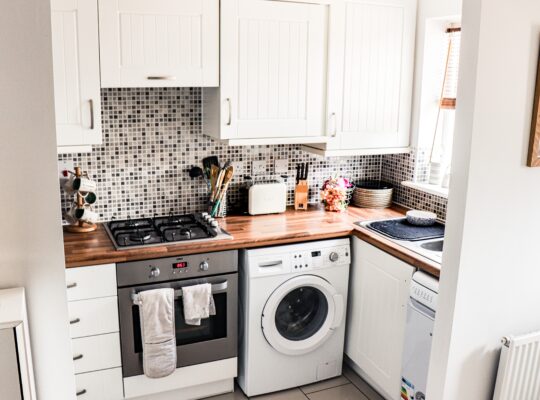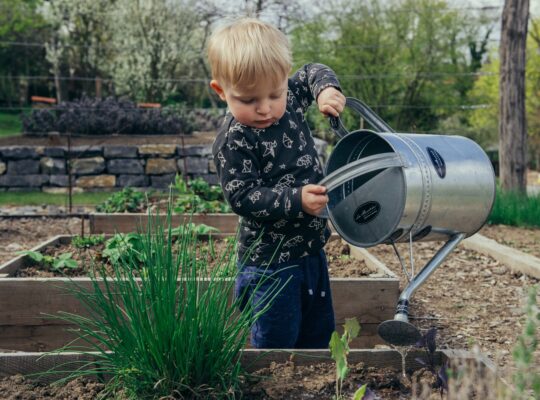Gardening is one of the most rewarding hobbies you can pursue. Not only does it provide you with fresh produce, but it can also be informative, therapeutic, and even calming. In this blog post, we will provide you with the best gardening tips to help you achieve success in your garden. From choosing the right plants to preparing the soil, we have everything you need to get started. So read on and let us help you make your garden flourish!
Gardening Tips for Beginners
If you are someone who is thinking about starting a garden, but don’t know where to start, these tips will help!
1. Choose the Right Site
Your first step in gardening is choosing the right site. Your garden should have at least six hours of sunlight per day. If you live in a cold climate, make sure your soil isn’t too dry or too wet. The right pH level is also important: neutral is ideal, but most soils are around 6.0 to 7.5. Finally, make sure your garden has good drainage so water doesn’t accumulate on the surface and rot your plants.
2. Prep the Soil
Before you plant anything, make sure your soil is prepared by adding organic matter (such as compost or manure) and plenty of organic fertilizer. You can also add sand if your soil isn’t heavy enough to hold moisture well. Make sure the area where you plan to plant is clean and free of rocks and roots that could damage your plants over time.
3. Plant Seeds Indoors or Outdoors?
When it comes to planting seeds, there are two options: indoors or outdoors. Indoors, plant seeds early in the morning so they have plenty of light and warmth to germinate; outside, plant them in indirect sunlight so they can grow slowly and be more resistant to pests and diseases. When it comes to growing vegetables, select varieties with fast-
Planting a Garden
When you’re thinking about starting a garden, there are a few things to keep in mind. Here are the best gardening tips to get you started:
1. Choose the Right Site: Your garden should be located in a well-drained soil and have plenty of sunlight.
2. Prepare the Soil: Before planting, make sure the soil is moist but not wet. Add organic matter (such as compost) before planting to improve fertility.
3. Plant Early and Plant Often: Start plants early in the growing season (March through May) and plant regularly throughout the summer months to ensure a bountiful harvest.
4. Mulch: Protect plants from cold weather by mulching with straw, leaves, or other loose organic materials. This will also help retain moisture and help prevent weed growth.
Choosing the Right Garden Supplies
The best gardening tips will provide you with the tools and information needed to have a successful garden. Here are some of the most important supplies:
-A shovel
-A hoe
-A rake
-A spade
-Trowel
-Gardening gloves
-Bucket or container to dispose of excess water
-Cordless drill/driver with 1 inch bit (optional)
-Tape measure
-Potting soil mix or premixed plant mix
-Sunflower seedlings or flower bulbs (optional)
1. Start by clearing any debris away from the area where you want to garden. This includes old leaves, branches, and other compostable material. Make sure that there are no rocks, roots, or sticks in the area that could damage your plants later on. If necessary, use a shovel to remove these objects.
2. Once the area is clear, spread a layer of tilled soil over it using your shovel. Tap it down firmly with your hand so that it is uniform in thickness. This layer will help to support your plants and prevent them from being damaged by weathering and erosion over time.
3. To prepare the planting hole for your plants, use your hoe to roughen up the soil around it until it becomes loose enough to dig with your fingers; don’t try to till this part in yet since you’ll need room for the plants later on.
Preparing Your Garden for Spring
The weather is getting warmer, the days are getting longer, and flowers are starting to bloom! Spring is one of the most beautiful seasons in the garden, and it’s definitely a time to get your gardening gear ready.
Here are some tips to help you get started:
1. Start preparing your garden for spring by clearing away any debris from the winter months. This includes dead plants and leaves, as well as snow piles. It will make it easier to plant new plants later on and keep your garden looking neat and tidy.
2. Get your hands dirty! Dig out any roots that may have taken hold over winter and break up any clumps of soil so that water can reach all of the planting areas more easily. Make sure to add organic matter like compost or aged manure when you tilling or shoveling in order to improve the soil’s texture and fertility levels.
3. Plant some bulbs early on in the spring season – they come into bloom very quickly and will add a touch of color to your garden while providing some useful blooms such as daffodils, hyacinths, tulips, etc. Be sure to choose varieties that are hardy in your area – not all bulbs are meant for colder climates!
4. Fill in any gaps between plants with healthy mulch – this will keep weeds at bay, prevent moisture loss through the ground, and retain heat during colder months. The best mul
Maintaining Your Garden in the Summer
To maintain your garden in the summer, water it when the soil is dry and fertilize it when needed. Make sure to keep pests under control by using a pesticide or using natural methods. If you want to grow vegetables, seed them in early spring and then water them regularly. Fall is a great time to clean up your garden and remove any dead plants.
Fall Gardening Tips
When it comes to gardening, there are a few things that always need to be kept in mind. Firstly, make sure that you have the right tools for the job. Secondly, think about what kind of plants you want to grow and select the appropriate seeds accordingly. Finally, be patient – gardening is definitely worth it! Here are someFall gardening tips to get you started:
1. Start gearing up early – One of the best ways to save time and energy when gardening is by starting early in the morning or late in the evening. The sun is usually at its weakest then, making it easier for you to take care of your plants without having to contend with harsh sunlight.
2. Water sparingly – When watering your plants, make sure that you do it sparingly. Over-watering can cause root rot and other plants problems. Give your plants just enough water so that their roots can absorb it but don’t give them so much that they turn into soggy messes on top of their soil surface.
3. Avoid using pesticides – Pesticides can be harmful both to humans and animals, which is why it’s important not use them if possible. Instead, use organic methods such as sprinkling compost over newly planted vegetables or spraying diluted vinegar over pests such as aphids or spider mites.
4. Mulch – A good way to keep weeds at bay and help retain moisture in the soil
Winter Gardening Tips
There is no need to be a genius to garden in the winter. In fact, many of the basics are the same regardless of weather conditions. Here are five tips for gardening in any season:
1. Prepare the soil: A good starting point is to amend your existing soil with organic matter such as compost or aged manure. Adding this extra layer of nutrients will help promote vigorous growth and protect plants from disease.
2. Plant early: Try to plant your vegetables and flowers as soon as the ground can be worked, which is usually around mid-November in most parts of the country. This way, you’ll get a jump on frost protection and avoid battling harsh cold temperatures later on.
3. Water well: It can be tough keeping plants alive during winter months when it’s so wet outside, but by watering regularly you’ll help them stay healthy and produce fruit or flowers throughout the colder months.
4. Plant succulents: Succulents are perfect for winter gardening because they require very little water (or none at all) and can survive low light levels and cooler temperatures. Hardy varieties like Sedum acre, Sempervivum arvense, Coprosma betulaefolia, Crassula ovata and Echeveria gibbosa make great choices for beginner gardeners or those who want an easy project that looks impressive when finished.
5. Make use of mulch: Having a layer of mul









